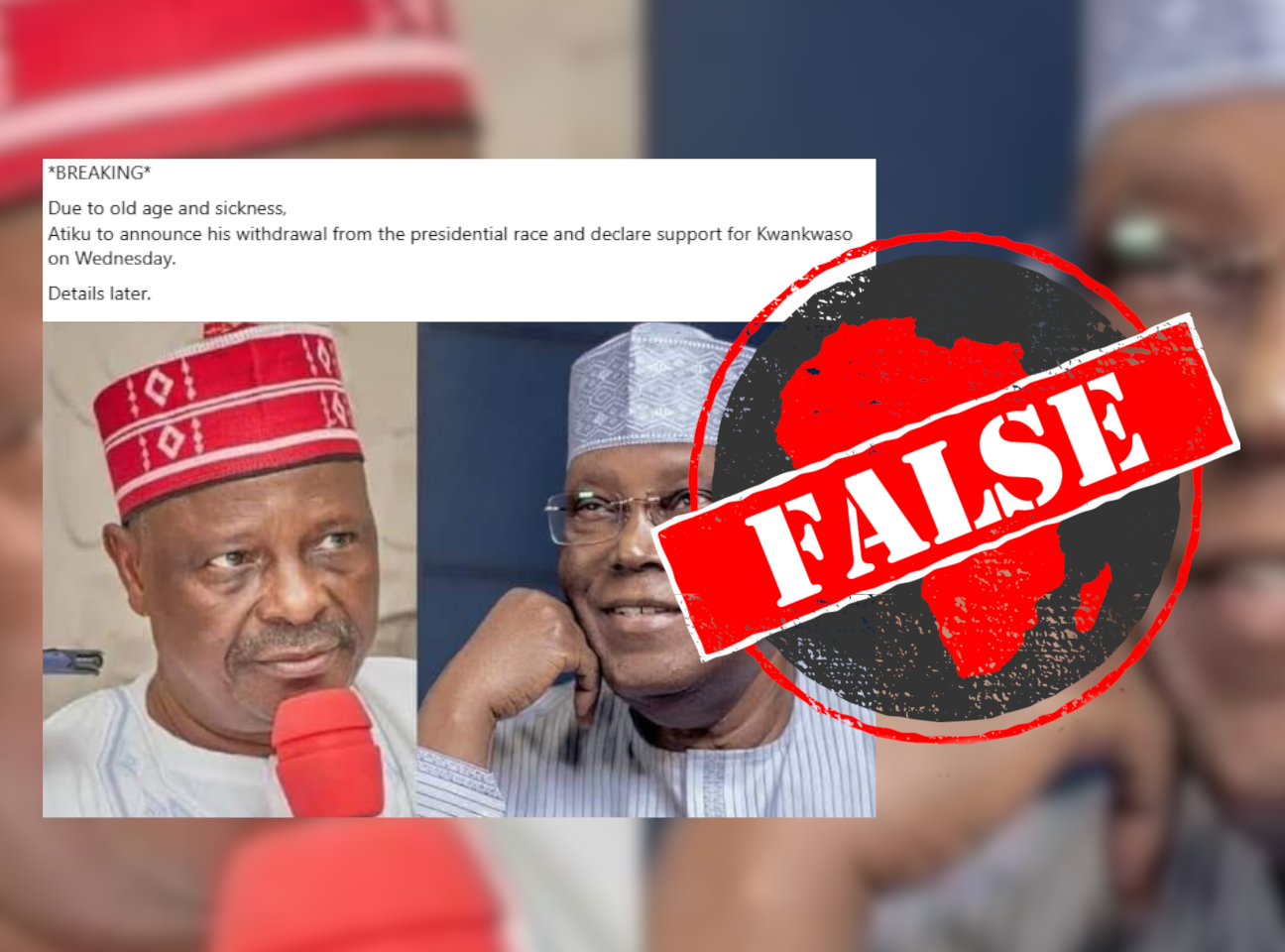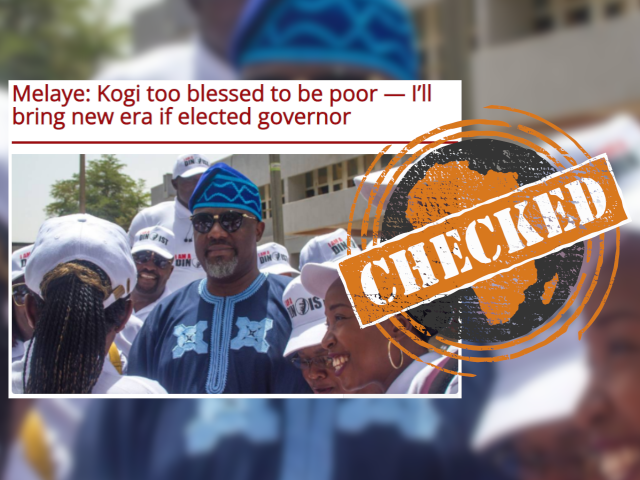IN SHORT: Atiku Abubakar of the Peoples Democratic Party was one of the four frontrunners in the presidential elections. If he had dropped out on the day of the vote it would have hit headlines. It didn’t – the rumour is false.
Nigerians went to the polls on 25 February 2023 in presidential and parliamentary elections closely watched across the world.
On the day, a rumour that leading presidential candidate Atiku Abubakar of the Peoples Democratic Party (PDP) had withdrawn from the race started circulating on social media.
One version reads: “Atiku Abubakar of PDP withdraws from presidential race. It’s over.”
But did Abubakar really drop out on the day of the elections?

Disinformation limits voters’ choices
Abubakar was one of the four frontrunners in the presidential race. If he had withdrawn on the day of the elections it would have hit local and international headlines. But there have been no credible news reports confirming the rumour.
And on the day, Abubakar posted photos of himself casting his vote, on Twitter.
I just exercised my right to vote. Let’s all do our part and participate in shaping the future of our dear country. -AA #NigeriaDecides pic.twitter.com/eQngUfE6bc
— Atiku Abubakar (@atiku) February 25, 2023
He tweeted: “I just exercised my right to vote. Let’s all do our part and participate in shaping the future of our dear country.”
Paul Ibe, the PDP presidential campaign’s spokesperson, also told Africa Check the rumour was false.
The rumour was possibly an attempt to manipulate Nigerian voters’ choices.
Republish our content for free
For publishers: what to do if your post is rated false
A fact-checker has rated your Facebook or Instagram post as “false”, “altered”, “partly false” or “missing context”. This could have serious consequences. What do you do?
Click on our guide for the steps you should follow.
Publishers guideAfrica Check teams up with Facebook
Africa Check is a partner in Meta's third-party fact-checking programme to help stop the spread of false information on social media.
The content we rate as “false” will be downgraded on Facebook and Instagram. This means fewer people will see it.
You can also help identify false information on Facebook. This guide explains how.





Add new comment